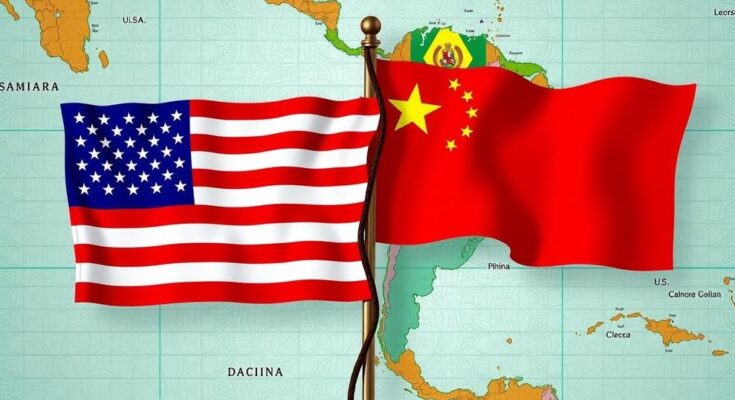China’s expanding investments in Latin America for key energy materials presents a geopolitical challenge to U.S. interests. With dominance in minerals and significant energy control in countries like Peru and Chile, China is solidifying its place as South America’s largest trading partner. The potential return of Donald Trump could lead to confrontations with China, reshaping the diplomatic landscape in the Western Hemisphere.
China is increasing its influence in Latin America, especially regarding critical minerals essential for renewable energy and electric vehicle manufacturing. South America possesses abundant resources such as lithium, nickel, and cobalt, which are vital for these industries. Chinese companies currently dominate the production of rare earths and various necessary materials, making deliberate investments in countries like Chile and Argentina. Moreover, China has established trade agreements with several Latin American nations and controls significant energy distribution networks, particularly in Chile and Peru. In contrast, the United States has been struggling to secure similar trade relationships under the current administration. The potential re-election of Donald Trump may elevate tensions, leading to confrontational policies toward China aimed at curtailing its influence in the region. This dynamic reflects broader geopolitical strategies, as Washington perceives China’s actions as a method of consolidating power and fostering alliances with authoritarian regimes. Overall, China presents a substantial challenge to U.S. interests in Latin America, necessitating careful diplomatic maneuvering to maintain influence within the sphere.
The growing relationship between China and Latin America is increasingly shaping global geopolitics, particularly in the supply of crucial materials. Latin America is rich in resources essential for emerging technology, particularly materials needed for renewable energy sectors, such as lithium and cobalt. As China ascends as the dominant player in these markets, both in investment and resource control, it understandably raises concerns for Western powers, specifically the United States. Under various administrations, there have been calls for the U.S. to counter China’s expanding influence in the region, emphasizing the need for strong diplomatic ties and trade agreements to ensure access to vital resources.
In conclusion, China’s assertive strategy in Latin America poses a significant challenge to U.S. interests as it fortifies trade networks and exert influence via resource control and energy distribution. The potential re-election of Donald Trump may intensify confrontational policies toward China, necessitating a strategic recalibration by the U.S. to counterbalance China’s growing foothold and mitigate its geopolitical ambitions. The dynamics in play will profoundly affect the future of international relations and economic partnerships in the region.
Original Source: oilprice.com




